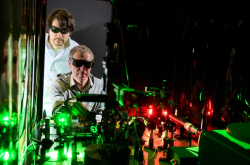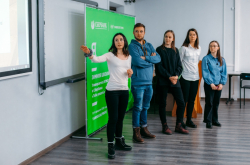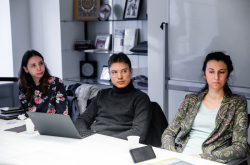International cooperation
Since 2014, the school has been training technology brokers: specialists who can conduct a comprehensive evaluation of a technology, package it for the market, and create or discover demand for it in the industry. In other words, technology brokers are a link between the academic community and the market and are responsible for any tasks that arise in the process.
The concept of the school was jointly developed by ITMO University, the European University at St. Petersburg, and Russian Venture Company. Every year, ITMO invites new partners, thus introducing new formats to the school and offering new opportunities. In 2021, the school ran in partnership with the South-Eastern Finland University of Applied Sciences (XAMK) – this way, students from both countries got the chance to learn more about helping technologies enter the market and supporting their development.
“The main idea of the Twin Campus project, which is operating within the 2014-2020 South-East Finland – Russia Cross-Border Cooperation Program, is to promote commercialization of technologies and research developed at the university. The School of Technology Brokers falls right into this framework because such specialists are responsible for technology transfer – that is, bringing new technologies to the market. Our partnership with XAMK made it possible to invite experts from Finland, which meant that ITMO students learned about the specifics of technology transfer in that country, while Finnish students got insights about similar practices in Russia. We are certain that this knowledge will help our students develop technological projects and commercialize them,” says Svetlana Bazueva, head of the International Programs and Projects Office.
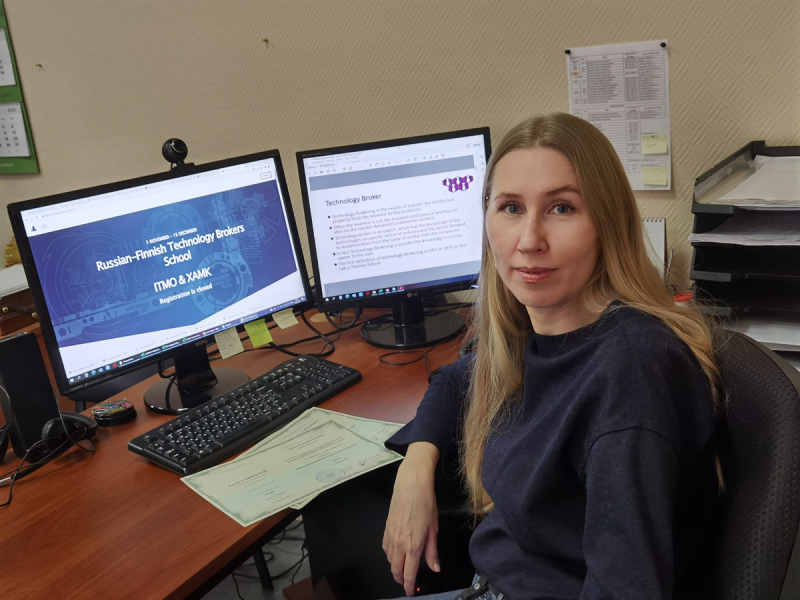
Svetlana Bazueva. Photo courtesy of the subject
As a result, the organizers had the chance to invite the best technology brokering experts and test a new kind of collaboration that could be later used for future schools and training programs.
“I think this school was one of the best projects we have had within the Twin Campus initiative because it was both easy to implement and easy for students to participate in thanks to the online format. This concept might help us establish collaboration with ITMO and other universities in the future,” added Minna Nieminen, a member of the XAMK Twin Campus project team.
Promoting technologies in Russia and Finland
Every year, the organizers add new sections to the school’s program, but its core parts remain the same: the participants study key principles of protecting technology and intellectual property, project management, as well as methodology of foresight and technology maps. This time, the lectures took place twice a week for six weeks and fell into seven modules taught by professionals from ITMO and XAMK. One of the modules looked into the features of technology transfer in different countries. Sergey Khmelevsky, lead manager at ITMO’s Science and Business Partnership Center, represented ITMO in this module.
“In this field, the experience of other countries is fundamentally different from that of Russia. Here, the main model of technology transfer are orders from the market, which is what ITMO successfully practices, too. What it means is that a major company orders a certain project to be completed by lecturers and researchers at a university, provides funding for expendables and salaries, and acquires the results of the project and all intellectual property rights. There is also a possibility to create a spin-off in the form of a small innovative enterprise at the university or get funding for a startup from an investment foundation. This way, the developers turn into co-founders of a company and initiate technology transfer,” explains Sergey Khmelevsky.
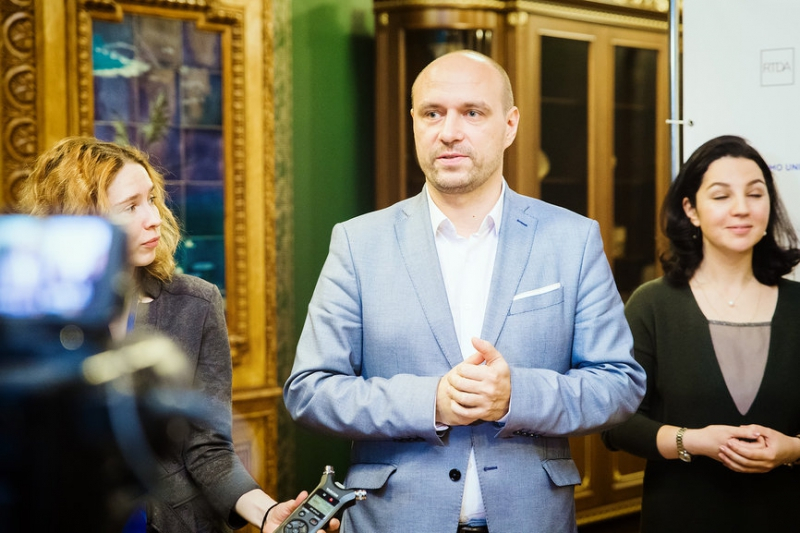
Sergey Khmelevsky. Photo by ITMO.NEWS
ITMO students who have an idea for such a project can pitch it at the ITMO Accelerator or join the Startup As Thesis initiative. These opportunities will help students turn their ideas into business models, analyze the market, and find clients who can buy their technology.
Minna Pasila, Contracts and IPR Specialist and a lecturer at XAMK, explained not only the process of protecting technologies with IPs but also the specifics of technology transfer in Finland.
“If you have invented something and want to offer it on the Finnish market, and start-up is not an option for you for one reason or another you still have two options: you can sell your idea or license it. And selling is a bit difficult because you never really know how valuable your invention is and how much it will be able to earn you in the future,” says Minna Pasila.
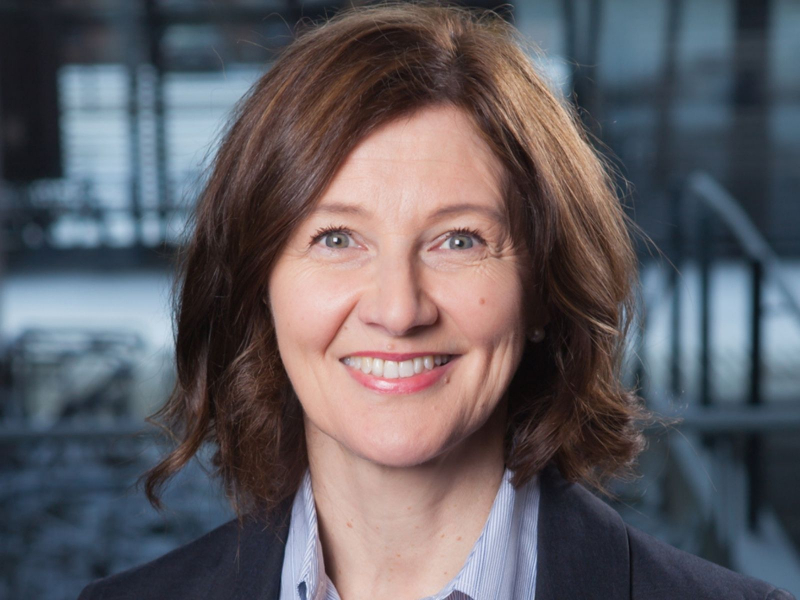
Minna Pasila. Credit: technobroker.ru/twin-campus
In Finland, there is also an ecosystem of foundations that support, among other things, technology transfer from Russia. This process usually includes the creation of legal entities in Finland with beneficial conditions: from spots at business incubators or coworkings without almost any rent during the first years of project development to a system of financial support and funding, as well as assistance in entering the European market.
In practice: technology transfer
In total, 35 students took part in the school: 11 students from XAMK and 24 from ITMO. In contrast to the previous schools, this year the organizers didn’t include group tasks or project defenses. Instead, students took tests after every lecture to see how much they’d learned. 21 Russian and 6 Finnish students who missed no more than two classes and completed every test received certificates of completion.
One of such students was Elena Klimshina, head of the Center for Innovative Entrepreneurship at the St. Petersburg branch of the Higher School of Economics. As an expert in the field, she deems the experience of ITMO and XAMK worthy of attention.
“I really wanted to learn more about the technology transfer practices at ITMO and XAMK – such information is not usually available to the public. All in all, I would like to thank my colleagues for organizing this school, which allowed me to brush up on some crucial facts and learn more about their experience. I will definitely use some of the suggested methods in my daily practice,” adds Elena Klimshina.
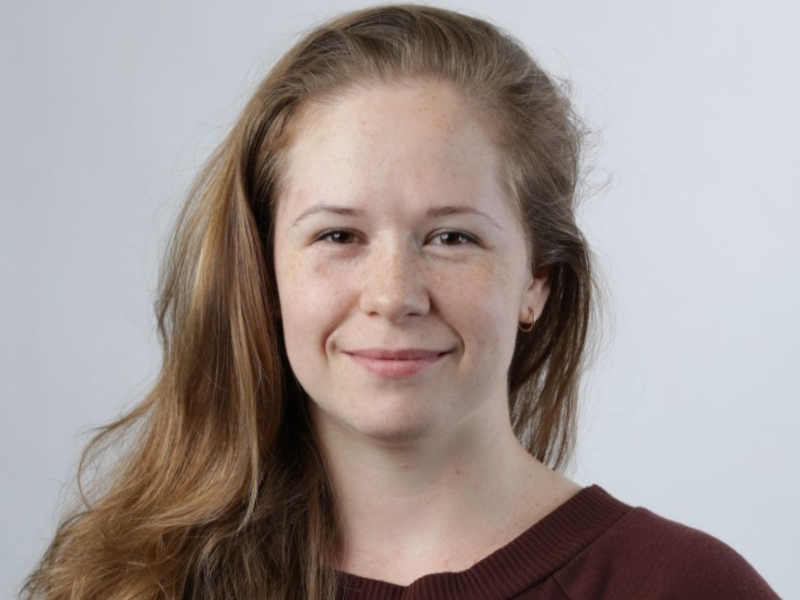
Elena Klimshina. Photo courtesy of the subject
Mohammad Ali, a Bachelor’s student in the field of information technology engineering at XAMK, decided to take part in the school to use the knowledge and skills he would acquire in his own project at the university.
“At the Technology Brokers School, I learned about innovations, developing new ideas, and bringing them to the industry: about intellectual property protection, copyright laws and regulations, as well as startups and their development. I will try to apply this knowledge while working on my own innovative idea in the field of IT,” says Mohammad Ali.



